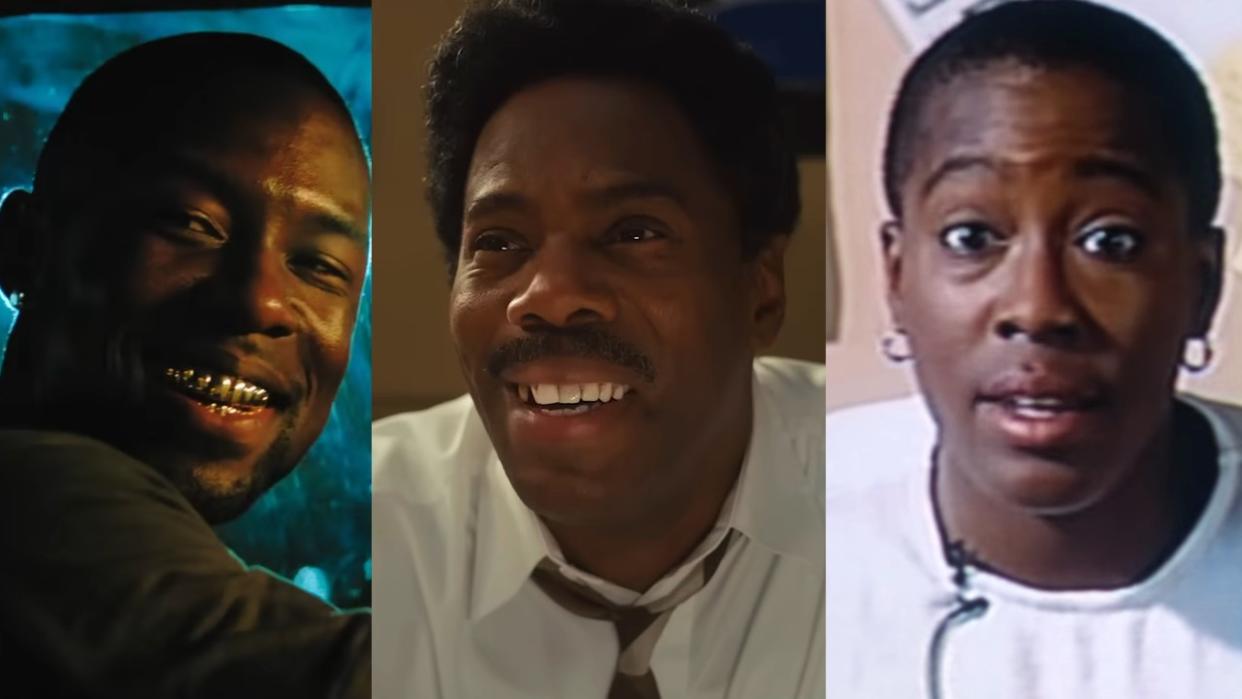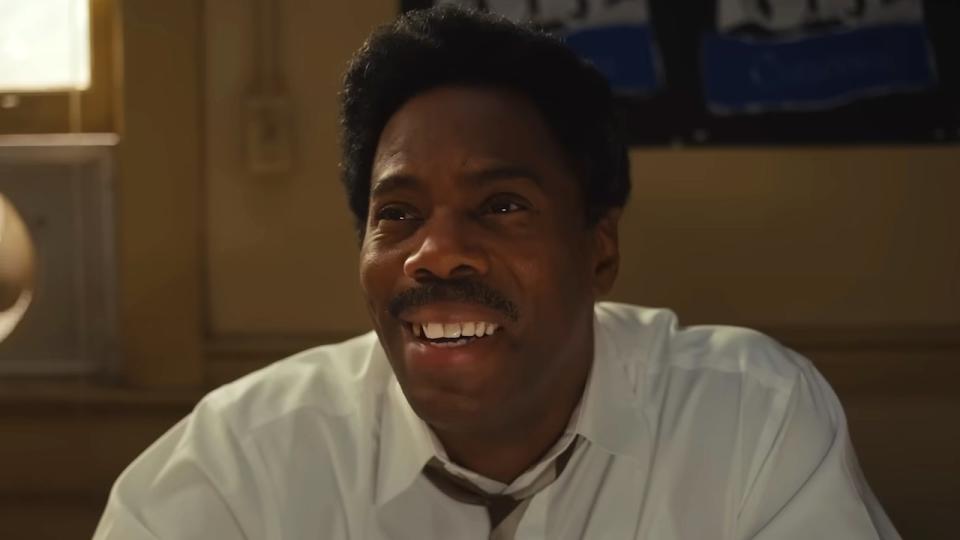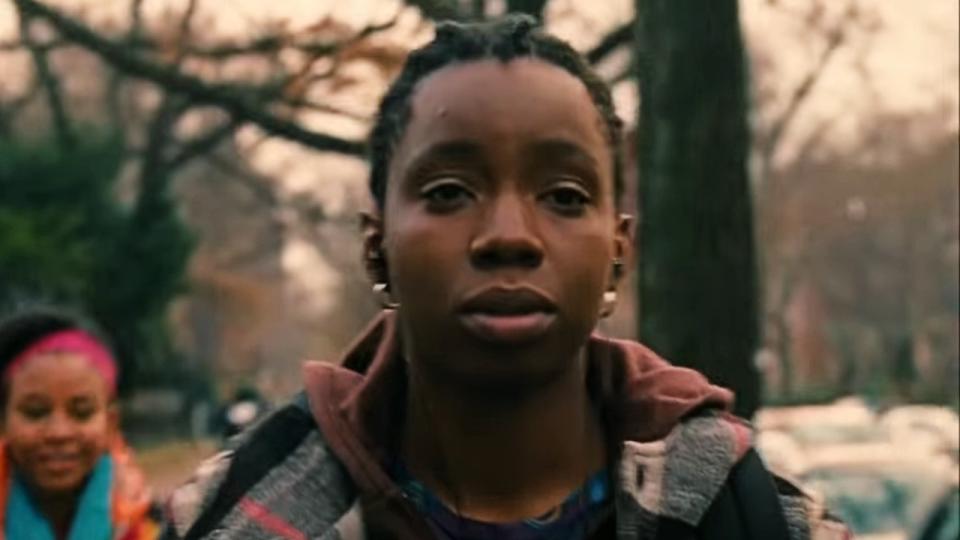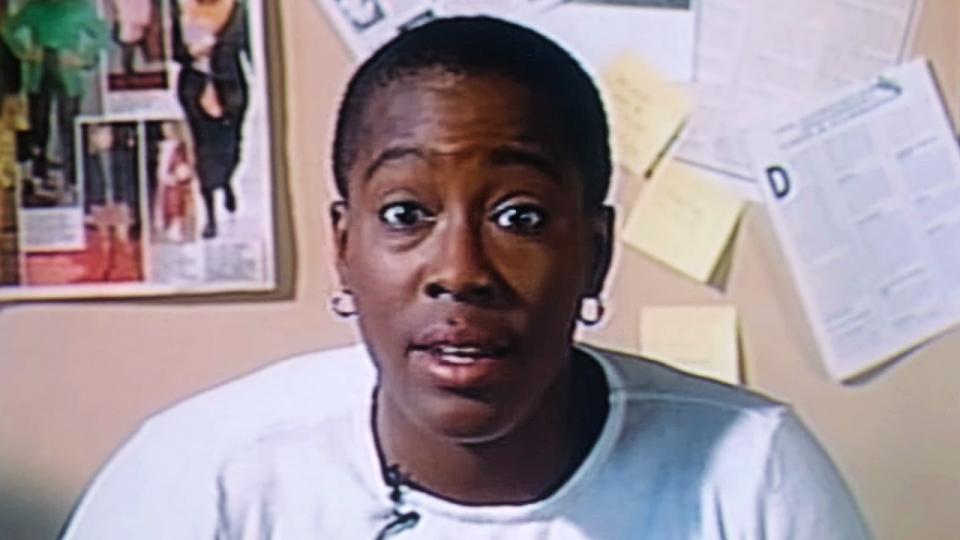5 Must-Watch Black Movies For Pride Month

LGBTQ+ visibility has changed and increased after years of being sidelined on the silver screen. However, seeing Black LGBTQ+ representation on film is still sparse, with notable exceptions. The underrepresented group has taken center stage in beloved movies, including Brother to Brother and Holiday Heart. In recent years, acclaimed projects like The Inspection and Blackbird towed the delicate line of race and sexuality. Other films have tackled Black LGBTQ+ storylines from different perspectives and genres for audiences to enjoy.
So, here are five must-watch Black movies you need to check out for Pride Month.

Moonlight (2016)
Moonlight made a splash upon its release in 2016. The stirring coming-of-age drama placed a spotlight on the difficulties of growing up in a world where your sexuality is a hindrance rather than an attribute.
The movie follows the life of the main protagonist Chiron (played by three actors – Alex Hibbert, Ashton Sanders, and Trevante Rhodes) as he goes from a young boy in Miami, FL to a young adult accepting his sexuality with no trepidation. Viewers watch him not accept his sexual orientation, but instead the trappings of modern-day masculinity and physical and emotional abuse from loved ones.
This is carefully illustrated in his relationship with his drug-addicted mother (played by Oscar nominee Naomie Harris). Moviegoers see the mother-child relationship morph from adversarial to understanding by the film’s end. Other fundamental relationships include his mother’s drug dealer and father figure Juan (played by two-time Academy Award winner Mahershala Ali) and his childhood friend-turned-love interest, Kevin (André Holland). These relationships illustrate Chiron’s gradual acceptance of himself, concluding in the drama’s endearing finale.
Moonlight was a 2017 award-season darling as it racked up multiple wins and nominations, including Golden Globes and Oscars. The film ended up winning a well-deserved Best Picture award at both ceremonies. The coming-of-age drama has become one of the 21st century’s best films. Watch (or rewatch) the Oscar-winning film through a Max subscription.

Rustin (2023)
Rustin arrived in 2023, riding Hollywood’s biopic wave. This true-life story brought important civil rights figure Bayard Rustin from history’s shadows to the forefront by touching on his life up to the March on Washington.
The biopic portrays Rustin’s (played by Oscar nominee Colman Domingo) life while organizing the 1963 March on Washington alongside other civil rights heroes like Martin Luther King Jr. and Ella Baker. The film serves as a full portrait of the civil rights activist, showing multiple layers of his life beyond the important event.
There is a sense of urgency and enthusiasm as Rustin’s differing dynamics are fully displayed. Viewers watch the unsung civil rights organizer interact with other notable figures. His work and interactions with key figures like MLK, Roy Wilkins, and Anna Hedgeman illustrate his polarizing dynamic within the movement. Of course, another relationship explored is his romance with strategist Tom Khan (played by Gus Halper). The conflicting relationship calls into question whether Rustin’s sexuality played a role in his diminished place in history.
Rustin gained acclaim for Domingo’s performance, which racked up multiple wins and nominations. The actor scored an Academy Award Best Actor nom. You can watch the biopic with a Netflix subscription.

Pariah (2011)
Pariah marked a significant change when it debuted at the 2011 Sundance Film Festival. The coming-of-age story spotlighted LGBTQ+ youth’s challenges of coming out.
The movie displays the story of Alike (played by Adepero Oduye) coming to terms with her sexuality and balancing her wants with society’s expectations. As the story develops, viewers watch Alike navigate her sexual awakening and identity while rebelling against femininity standards with her butch lesbian identity.
Of course, all this runs in tangent with her changing relationship dynamics. The 17-year-old high schooler is constantly battling with her prejudiced mother Audrey (played by Kim Wayans) as they battle over her sexuality, culminating in a sour note. At the same time, she deals with an unrequited love from her love interest Bina (played by Aasha Davis), and a rocky friendship with BFF Laura (played by Pernell Walker). Despite the hardships, she does have a support system through her father and sister (played by Charles Parnell and Sahra Mellesse). These dynamics help Alike to grow into herself over the film’s run.
After its Sundance premiere, Pariah was praised for its story and performances. The film scored several award nominations and wins. This didn’t translate into box office success, but did culminate in a cult following. This aspect led to the coming-of-age drama being named one of the best 2010s films and 21st-century releases. Watch the critically acclaimed cult classic by renting/buying it on Amazon Prime Video.

Rafiki (2018)
Rafiki became a must-see film after premiering at the 2018 Cannes Film Festival. The tale of star-crossed lovers illustrated falling in love amongst societal strife.
The movie follows the budding romance of two young women, Kena and Ziki (played by Samantha Mugatisa and Sheila Munyiva), as they navigate familial and political strife over LGBTQ+ rights in Kenya. The two women play with high stakes in a world that doesn’t acknowledge or respect their sexual preference while maintaining secrecy as the daughters of political rivals.
While their romance takes center stage, other dynamics assume space in the film. The young women must navigate family relations with opposing political families. Revealing their relationship and the aftermath displays how politics can separate even the best relationships. The tension over their relationship is best illustrated in Ziki’s friend group, as they go from tolerating the romantic duo to assaulting Kena. The tension only makes the movie’s finale more rewarding.
The Cannes premiere made Rafiki the first Kenyan film to premiere at the festival. As the country’s first LGBTQ+-centric film, it garnered critical acclaim for its characterization and storyline. It wasn't a box office success, but developed an indie following. You can stream this history-making movie through an Amazon Prime Video subscription.

The Watermelon Woman (1996)
The Watermelon Woman proved to be a landmark “New Queer Cinema” moment upon its release in 1996. The romantic comedy blended satire, mockumentary, and romance effortlessly to spotlight the duality of Black cinema and women in Hollywood.
The movie is a film-within-a-film as Cheryl Dunye (playing an exaggerated version of herself) documented the process of crafting her first documentary based on faux Black actress Fae Richards. The quest for the film’s subject opened up the narrative to explore Black womanhood, visibility, and homosexuality in media, especially when examining Richards’ off-screen life. Over the film’s run, those subjects play out in Cheryl’s life as she deals with the fallout of her interracial relationship with Diana (played by Guinevere Turner) while making the documentary. Compared to other films, this one ended on an unsure note.
While not widely released, The Watermelon Woman was a film festival hit, playing at outlets like Berlin International and Toronto International. It developed a cult following over the years, leading to its US National Film Registry entry in 2021. Find out why this landmark work is an indie film classic by streaming it through a Max subscription.
These movies have left an impression on audiences. Their importance in cinematic history can’t be denied.
Black LGBTQ+ representation is only increasing as Hollywood continues to center the community in movies. Multiple shorts and films are coming from film festivals, including Grace and Merman. Theatrical releases haven’t been in short supply as Shug and Celie’s relationship in the 2023 The Color Purple musical adaptation and indie drama, Brother, put a necessary spotlight on Black LGBTQ+ stories. Check out our 2024 movie schedule for more Pride Month-friendly movies. In the meantime, watch the 32 best LGBTQ+ movies to see more representation.

 Yahoo News
Yahoo News 
